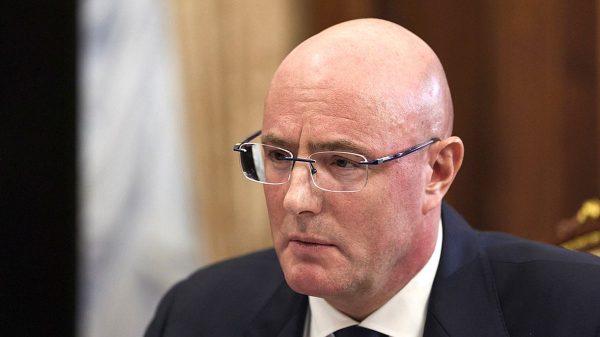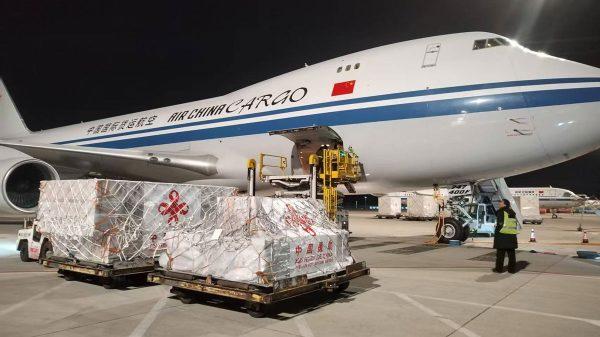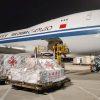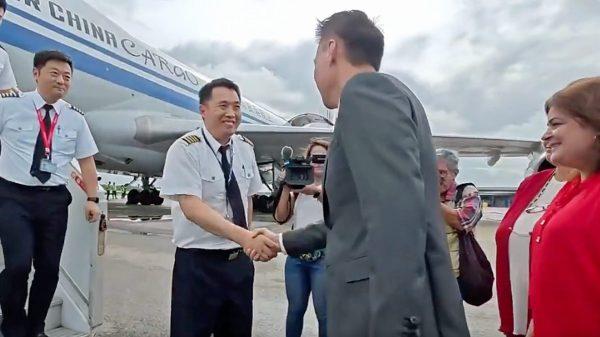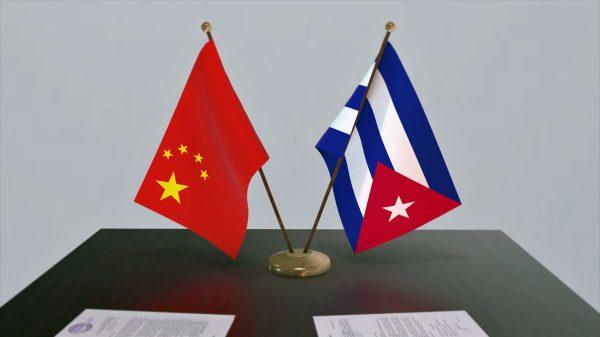Our latest interview is a discussion with BioCubaFarma’s Vice President, Dra. Mayda Mauri Pérez. We covered a variety of topics that included Cuba’s current COVID-19 protocol, BioCubaFarma’s partnerships/joint ventures with the Roswell Park Cancer Center, China, Russia, and the future direction of the company.
This interview took place remotely via the Whatsapp platform on June 23. Dr. Mauri spoke with Cuba Business Report’s editor, T.K. Hernández.
The pharmaceutical and biotechnology industries in Cuba have a history of more than 35 years. In 2012, the Pharmaceutical and Biotechnology Industries Group (BioCubaFarma) was created. Dr. Mauri played an important role in the commercial and business development of the biotechnology industry in her position as General Manager of Heber Biotec S.A, from 2000 to 2012. Heber Biotec is the commercial company of the Center for Genetic Engineering and Biotechnology (CIGB), a leading company in the development of biotechnology in Cuba, with internationally recognized prestige.
Dr. Mauri has 27 years of experience working in the Cuban biotech sector. In 2012, Dr. Mauri, one of the founders of BioCubaFarma, began her career as Director of Business, Commercial and International Cooperation. From July 2017 to the current date, Dr. Mauri is Vice-President in charge of Commercial and Business Development.
Since 2013, Dr. Mauri is coordinator of the Cuba-China Working Group on Biotechnology.
In 2019, Dr. Mauri was a member of the Cuban delegation attending the 72th World Health Assembly with the Minister of Health, Dr. José Ángel Portal Miranda, to present Cuba’s role in primary health care.
Dr Mauri studied International Economic Relations at the Higher Institute of International Relations (Raúl Roa García) and holds a Masters of Business Administration and a PhD in Economic Science from the University of Havana.
Cuba Business Report: Let’s discuss the challenges and successes BioCubaFarma has faced during the COVID-19 pandemic. There are reports that the CIGB 258 vaccine has shown great promise. What is the treatment protocol for patients at this time and have any other countries requested to export any of Cuba’s COVID-19 drugs?
Dr. Mayda Mauri Pérez:
Yes, the use of the drug initially called CIGB-258 had an impact in the treatment of Cuban patients with COVID-19 in serious or critical condition.
Recently, the Cuban Regulatory Authority (CECMED) emitted Emergency Use Authorization for this drug, with the trademark Jusvinza.
Jusvinza is an immunoregulatory peptide, discovered and developed by the Center for Genetic Engineering and Biotechnology of Cuba. This immunoregulatory peptide has demonstrated to induce regulatory mechanisms of inflammation in different experimental systems associated with autoimmune diseases and in clinical investigation in patients with rheumatoid arthritis.
Currently, a phase II clinical trial with this immunoregulatory peptide is ongoing in patients with Rheumatoid Arthritis, in which 187 patients have been treated with the peptide with a remarkable safety profile outcome.
These results supported the use of Jusvinza to control SARS- CoV-2 induced hyperinflammation. Initially, Jusvinza was used in critical patients under compassionate use. The results were astonishing, incredible even for the medical doctors that used it in the Intensive Care Units. These results led to the inclusion of Jusvinza in the Cuban national protocol for the treatment of severe and critically ill patients with COVID-19. Sixty Cuban patients have been treated with Jusvinza. The survival rate of critically ill patients is 73 percent and in severe patients, 92 percent. There is no doubt, the use of Jusvinza has contributed to reducing the lethality of patients with COVID-19 in Cuba.
About the treatment protocol, critically ill patients (with mechanical ventilation) are treated with 1 mg of Jusvinza every 12 hours until they are extubated. They continued therapy with Jusvinza for another 72 hours after extubation, and the seriously ill patients are treated with 1 mg of Jusvinza each 24 hours. The drug is administered intravenously.
Worldwide, 80 percent of patients with mechanical ventilation died, in Cuba, it is quite the contrary, more than 80 percent surviving. We are proud of these results and ready to share them with every country and every patient that needs it. In fact, we are already discussing clinical trial protocols with several nations and companies. Modestly, we can assure we already have the drug to save lives of those patients in severe and critical conditions because of COVID-19.
Cuba Business Report: Can you update us on the status of the BioCubaFarma joint venture “Innovative Immunotherapy Alliance SA” with Roswell Park Cancer Center in the Mariel Special Development Zone?
Dr. Mauri:
The joint venture company Innovative Immunotherapy Alliance, incorporated in Mariel Special Development Zone in 2018, continues to be a successful cooperation project between The Center of Molecular Immunology in Havana and Roswell Park Comprehensive Cancer Center in Buffalo, New York. The collaboration is focused on making the novel immunotherapies, previously developed in Cuba, available to US cancer patients as a part of the innovative clinical research at Roswell Park.
CIMAvax-EGF is a cancer drug, developed by The Center of Molecular Immunology and used in the treatment of lung cancer in Cuba for several years. Roswell Park is running a Phase I/II clinical trial in US cancer patients with CIMAvax-EGF in combination with an anti-check point antibody, one of the leading cancer therapies in US market.
This combination has proved to be safe for the patients, according to the Phase I results, published last April in the annual conference of the American Association for Cancer Research. Phase I data also indicated preliminary encouraging results that this new combination could be benefiting some patients, which requires further investigation. The clinical trial is now enrolling patients in Phase II, where other combinations and tumor localizations could be included.
The JVC is planning to make other Cuban immunotherapies available to US cancer patients in the future, as part of comprehensive research collaboration between both centers, pioneers in cancer research. The Company, as a joint team, has also participated in recent events organized by Cuba to discuss the results in dealing with the COVID-19 pandemic. They are evaluating the current information to understand if some Cuban medicines could also help cancer patients infected by the new coronavirus.
Cuba Business Report: BioCubaFarma has developed many international partnerships to export pharmaceuticals and conduct joint research, for example, China. In recent months this partnership has been demonstrated through donations, collaboration (for example, the biotech development between Guangxi Fukang and BioCubaFarma in the Fangchenggang Development Zone.) What progress has been made on this partnership and are there other agreements in the works for biopharmaceutical research and development with China?
Dr. Mauri:
BioCubaFarma promotes cooperation and business with Chinese companies and institutions in the field of biotechnology and pharma industry in China under different cooperation models. The relationship is formed to advance product development and finally gain faster registration approval of the products in China. As result of close to 20 years of cooperation, we have settled three joint ventures in the territory, registered three products and brought in 10 technologies to date. The Centers of Cuban Biotechnology have incorporated to these companies, established in the People’s Republic of China, very new products and technologies for the treatment of diseases with high incidence in the population like cancer and hepatitis, among others.
Two of the three registered products are Nimotuzumab (produced by the JV Biotech Pharma Co., Ltd), a humanized monoclonal antibody for the treatment of nasopharyngeal cancer, which is included within the Chinese National Health Reimbursement List, has led to the treatment of more than 50,000 patients so far and is seeking approval for two other tumor indications (head & neck and esophagus); and the human recombinant Interferon alpha 2b (produced by the JV Changchun Heber Biological Co., Ltd), which upon request of China’s National Health Commission was used in the COVID-19 pandemic in several provinces of China. The product was successfully administered intramuscularly to boost immunity against the virus, especially in medical staff and in patients through nebulization.
There is also a BioCubaFarma’s Business Portfolio of ongoing products and projects, which cover most of the core therapeutic areas of interest for China, to share, aiming at conducting partnership with Chinese companies in the biotechnology and pharmaceutical sector. Such Portfolio comprises global patents for unmet medical needs and under-served patients worldwide.
One example of this sort of cooperation is Guangxi Fukang, a Chinese company with which BioCubaFarma and its designated companies have signed a Licensing and Co-development Agreement. Under this agreement, a number of innovative Cuban biotech products will be co-developed and introduced into the Chinese market through their establishment in the International Pilot Medical Development Zone of Fangchenggang, in the south of Guangxi province. China and Cuba decided to accelerate this project that will lead to the first joint biotech park to research, develop, produce and market drugs obtained by the Cuban biotechnology, of proven safety and efficacy in Cuba and overseas. The results derived from this cooperation will have impact not only for China, but also for the rest of countries from the ASEAN (Association of Southeast Asian Nations).
BioCubaFarma is also working with local Chinese governments of Chengdu, Yongzhou, Changchun and Shanghai, as well as Universities and Institutes (University of Science and Technology of Shanghai, Institute of Materia Medica of Shanghai, Institute of Neurosciences of Shanghai, University of Science and Electronic of Chengdu) to foster innovation in the biotech field, through the setting-up of R&D Centers and joint laboratories to bring jointly developed Cuban proprietary technologies to the Chinese market, of upmost priority for the bilateral cooperation in the sector.
Cuba Business Report: Another prominent partner of BioCubaFarma is Russia: In 2016, an agreement with the Skolkovo Innovation Center in Moscow was signed to provide Cuban pharmaceuticals to Russians. Can you update us on biopharmaceutical collaborations with Russia?
Dr. Mauri:
We believe that partnerships with Russian companies and institutions can enhance our own results and support the programs undertaken by the Russian government to solve the main health problems of its population.
In this sense, for a few years, several products of our companies have been registered in Russia. Among these we can highlight the Heberprot-P, an innovative product for the treatment of diabetic foot ulcer to avoid amputation and Hebermin for burn treatment, in collaboration with a Russian company. Currently there are several companies also interested in promoting these products in the Russian market and the CIS.
In June 2019, the Representative Office of the BioCubaFarma Group was registered upon the Russian authorities. This Representative office is based in Moscow.
Really, there are several other products of our companies (CIMAVax EGF, Heberferon, Jusvinza, Ateromixol, Melagenina, Coriodermina, Proctokinasa, Trofin, itolizumab) that are in different stages of negotiation with around 15 Russian companies. Some of these products have more than one interested Russian company. There are also more than 20 Russian companies that are interested in promoting their products in the Cuban and Latin American markets in collaboration with our companies and using our services and experiences to register and market their products in these markets.
Alliances and agreements for collaboration with several Russian institutions have also been established. In the Skolkovo Innovation Center there are already two start-up companies created by Russian partners (Bioneuropharma and Neyros) with two of our companies (CNEURO and CIDEM) in the field of neurological diseases for the co-development of innovative projects.
Additionally, there are two of our companies that are in the final stage of the process of joining the Bioorganika Consortium, created within the framework of the National Technological Initiative of Russia and coordinated by the Institute of Bio-organic Chemistry of the Russian Academy of Sciences.
MoUs have also been established with several Russian government and research institutions: St. Petersburg Medical and Ecological Equipment and Biotechnology Cluster, Center for Fundamental Research in Biotechnology, the Committees for the Development and Innovation of the Nizhny Novgorod and Mordovia regions.
Exchanges have intensified in recent years. Participation in events and fairs have been organized to promote scientific, business and medical exchange. We consider the collaboration has great potential and will be very productive for both nations.
Cuba Business Report: What is does the future hold for BioCubaFarma?
Dr. Mauri:
The future of BioCubaFarma is very promising.
Our strategy, as a company, is to consolidate ourselves as a strategic sector in Cuba, with high social and economic impact.
The Cuban biopharmaceutical sector has a worldwide reputation, thanks to its high standards of innovation and quality. BioCubaFarma is made up of 32 companies, with more than 20,000 employees.
BioCubaFarma has a consolidated international presence, with exports to more than 40 countries. The main products in its portfolio are biopharmaceuticals for the prevention and treatment of different diseases, such as cancer, infectious diseases, cardiovascular diseases, diabetes, as well as diagnostic reagents and medical equipment.
In addition, it has a wide portfolio of projects in different stages of development, both for human health, as well as animal and agricultural use.
The high scientific level of human resources in the Cuban biopharmaceutical industry guarantees the quality and competitiveness of its projects. It currently has 425 innovative projects in its portfolio, which represents a great potential for the future of our business group.
The Mariel Special Development Zone (ZEDM) should contribute significantly to the growth of the sector through its regulatory framework, favorable for those international companies wishing to invest in research-production facilities with high added value. The Portfolio of Opportunities for Investment offers several options to be inserted as an investor in the companies of the new biopharmaceutical hub of that Special Zone.
The Cuban Biotechnology and Pharmaceutical Industry is ready to introduce its projects and products in the countries with the highest economic development. Its portfolio of products and intangible assets provides the basis for an open and flexible approach to collaboration with external partners through several business models.
Cuba Business Report: Dr. Mauri, thank you so much for speaking with me today. You have provided a wealth of information on BioCubaFarma’s achievements in the biopharmaceutical industry, in its international partnerships, and the current COVID-19 global crisis. I wish you and the Company much success in the future.The world needs this kind of independent innovation in the sector.

T.K. Hernández is co-founder and editor at Cuba Business Report. Her work has been published in various online news media publications. Hernández has supported fundraising for Cuba’s last two hurricane disaster relief campaigns and is a member of the Canadian Network on Cuba. She is also a member of The Writers Union of Canada, and ACES International Alliance of Editors. Ms. Hernández is the author of three books, most recently, “The Cuba Interviews: Conversations on Foreign Investment and Economic Development,” (Palgrave Macmillan, 2023).







